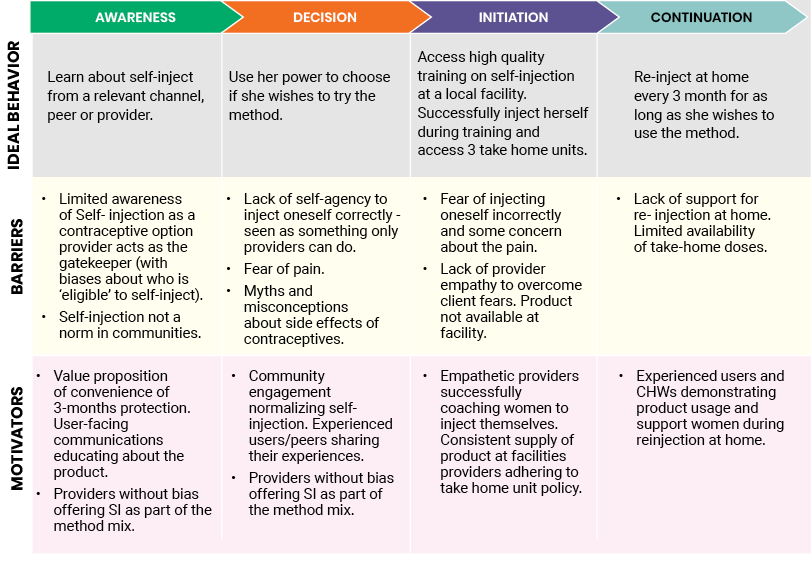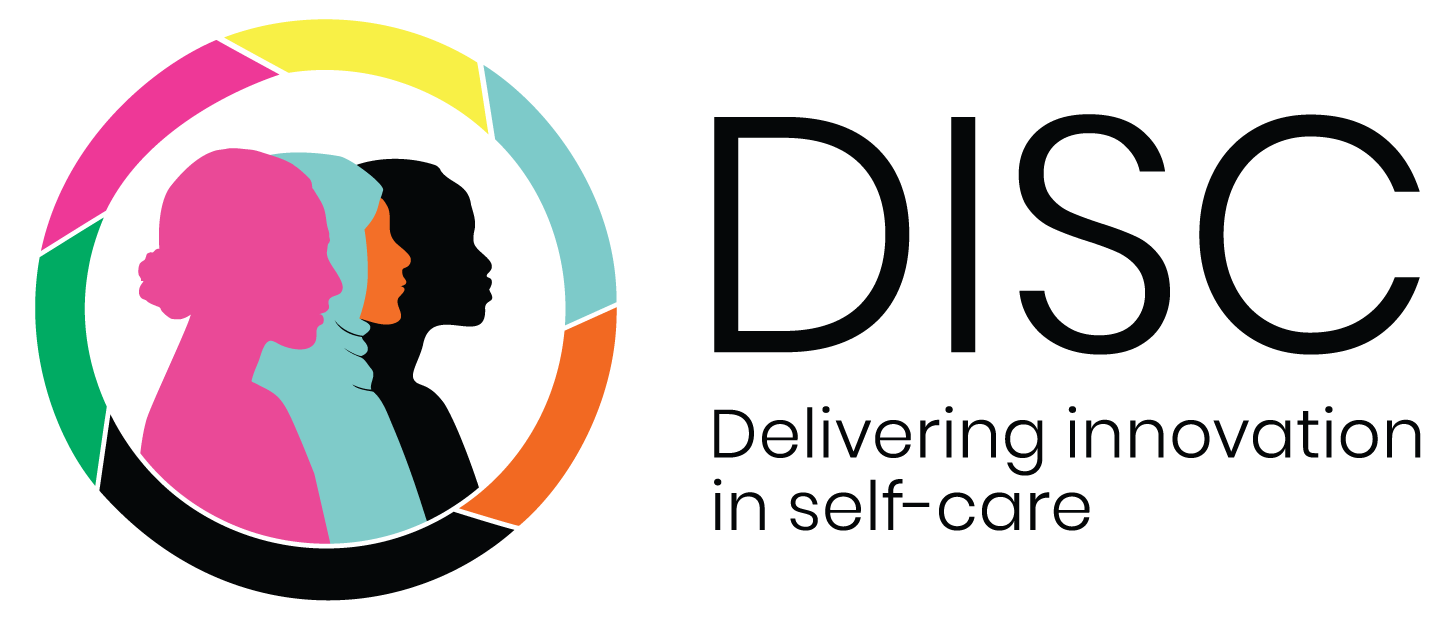Contraception
on her own terms
Self-inject offers women and girls a highly effective, convenient, and discreet way to protect against unintended pregnancies – for three months at a time. It can be safely and easily self-administered by women in the comfort of her own home. Studies have found that when used correctly, contraceptive self-injection is 99% effective at preventing pregnancy. In Senegal and Uganda, more than 93% of women who tried self-injecting expressed the desire to continue doing so. And in Malawi, research found that self-inject users had higher rates of continuation as compared to users of provider-administered injectables.

BARRIERS TO ACCESS AND CONTINUATION PERSIST:
Even when women feel empowered to demand what they want and need, barriers to accessing modern contraceptives, including self-injection, stand in their way:
- Commodity stock-outs or scarcity at service delivery points.
- Women lack timely, accurate and relevant information about how to access modern, effective contraceptives.
- Societal stigma around contraceptive users (for example, the notion that they are ‘promiscuous’)
- Myths about health risks of using contraception (for example, that injectables cause permanent infertility or cancer).
- Concerns about actual side effects (for example, the normal changes to menstrual cycles caused by hormonal methods).
- Provider opposition, hesitancy, or low capacity around counseling clients to adopt self-care and/or use DMPA-SC self-inject in particular.
- Provider biases against certain client ‘types’, e.g. youth, less educated women, etc.
- Many women have a sense of low self-efficacy to self-inject that’s linked to fear of the needle and/or uncertainty about the correct technique
Barriers to access and continuation

Find out how we’re tackling these barriers









